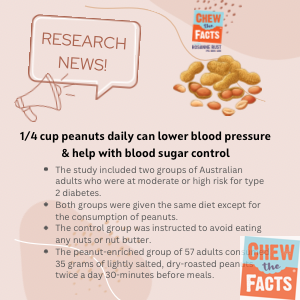Diet-Free Language: Language of Trust

Diet regime society has seeped into the way we chat and the way we parent.
What is diet program lifestyle?
Diet program tradition is the notion that certain bodies and methods of taking in are morally superior to other individuals. Eating plan society tells us in blatant and a lot more delicate approaches, that we all must be doing work in the direction of hunting and having in these selected means. The concept is, we need to use external policies and guidance to command our foods and bodies to be morally appropriate.
Parenting Underneath the Affect of Food plan Culture
These strategies have taken hold in the way we talk to ourselves, our friends, and our kids. When we dad or mum less than the affect of diet plan culture, we may possibly be training our young children they simply cannot be trusted. We are instructing that their interior cues and dreams can’t be dependable and their bodies cannot be trustworthy to obtain and increase on their have. This is contradictory to supporting a boy or girl in getting autonomy and trusting them selves in producing wise and sound selections. Diet plan tradition erodes a dad or mum in supporting their youngster in gaining self-self-assurance, consciousness, and belief.

Image by Caleb Oquendo from Pexels
Counter-Cultural Language
Just very last 7 days, I arrived at an occasion and an individual advised me the foods they have been eating was “undoing” their day’s exercise routine. Hearing anything like this is a stark distinction to the culture I am in at my anti-eating plan diet observe, but I’m also aware I’m the “odd” a single out in the “world.” Language like this is rather commonplace in our society. It is pretty much as commonplace as indicating, “How was your working day?”
In our culture, it can consider intention and courage to use language that is a lot more in line with Responsive Feeding, rather than eating plan society. For numerous, this is intuitive and may perhaps be the way you were raised. For many others, this could come to feel really counter to the messages you are hearing about you or how your mom and dad talked about food items and bodies. Responsive feeding is an method to feeding that places the concentrate on the romance among caregiver and boy or girl and strives to aid the child’s internal cues, curiosity, and autonomy. You can browse much more about Responsive Feeding treatment in this article. Diet culture interferes with a person’s potential to tune in, responsive feeding supports it.
The language we use as moms and dads can influence our small children all through their lifetime. Our language can influence our children’s interior dialogue. How we speak about food stuff and bodies is very significant and a piece of consuming ailment avoidance.
How We Discuss About Foods and Bodies

Photograph by Anastasia Krylova from Pexels
How we talk about foodstuff:
So typically food items is reviewed in “good” and “bad” conditions. Foodstuff is labeled “healthy” or “unhealthy.” Discover as you go by means of your working day how generally foods is referred to in a moralistic way, or a human being labels on their own in a moralistic way in relation to what they have or have not eaten.
- 
- “I was so ‘bad’ this early morning. I ate a doughnut!”
- “No thank you, I’m remaining “good” nowadays.”
- “I know this meals is so poor!”
- “We’re eating excellent now, simply because later on we’ll be terrible.”




Just noticing this moralistic language that is a part of our everyday rhetoric can be a concrete, preliminary phase to shifting language. Just notice.
The next stage could be to obstacle on your own to not chat about foods in moralistic methods. Food stuff is foods. What if instead, we experimented with discussing food items with its make any difference-of-simple fact attributes — food stuff is crunchy, chewy, tart, spicy, very hot, or cold. Or, you may well converse about food stuff dependent on your opinion of how it preferences.
- 
- “That is genuinely yummy!”
- “That is way too tangy for me, what do you believe?”
- “Mmmm. I’m fairly complete. I ought to have been definitely hungry!”



We also could discuss foodstuff in how it relates to our memories or thoughts.
- 
- “This pie can make me so pleased. It reminds me of my father.” “
- “I like viewing you try to eat that ice cream. I can notify how a great deal you get pleasure from it.”
- “This warm soup will make me really feel far better right after these kinds of a tough day.”



Foodstuff and thoughts are linked and we can design that this is legitimate and acceptable.
How we communicate about our children’s feeding on:

Photograph by Kampus Production from Pexels
Have you found yourself striving to handle your child’s ingesting?
- 
- “Slow down.”
- “You’ve eaten a whole lot, you really do not want extra.” “
- You have only eaten carbs currently, you will need to eat some hen.”



What if rather, we shifted our language to language that products have confidence in?
- 
- “Is your tummy total?”
- “You make very good selections, I belief you.”
- “What is your beloved foods on the desk?”
- “You can stop eating when you’re comprehensive.”
- “Does very little search very good to you? How can I aid?”
- “I can tell you like that. What else would you like with it?”
- “Listen to your physique. If you are accomplished, you are accomplished.”







How we discuss about our bodies:
It is all too typical for people to make negative feedback about their bodies. Frankly, It can even be odd for somebody to converse positively about their entire body. Nevertheless, when we converse negatively about our body in entrance of our child, we are modeling that this is okay and standard. We are even modeling that not looking a particular way is tied to acceptance.
The initially action may possibly be to work on refraining from stating damaging responses about your entire body in entrance of your boy or girl. By not modeling this conduct, we are no extended normalizing it.
The subsequent action could to be to experiment chatting positively about your body in entrance of your child. You may experiment with hoping phrases like these:
- 
- “My arms are powerful. I can pick you up!”
- “My nose appears to be like just like my mom’s and your nose seems to be just like mine!”
- “I’m grateful for my stomach. You grew within!”
- “Something I’m proud of is how rapidly my thoughts can do math.”
- “I like the way my hair looks, it reminds me of how my mother employed to wear her hair.”
- “I genuinely like my outfit. I come to feel terrific in it!”







Picture by Nicola Barts from Pexels
How we talk about others’ bodies:
It is rather commonplace to listen to folks earning reviews about other people’s bodies, no matter if that is an individual on Television, an acquaintance, or a friend or family member. Our little ones are listening and observing. If we criticize others’ bodies or put price on sure bodies over other folks, even if we really do not know the person, we are modeling this behavior to our small children. We are modeling that it’s ok to remark on others’ bodies. We are also modeling that persons will need to glimpse a specific way to acquire our acceptance. A kid may possibly marvel, “What if my entire body commences to appear like them? Will I still be liked?” There are so several extra appealing attributes about a particular person other than the measurement or form of their system. Instead of concentrating on body weight, what can you design for your boy or girl about how to communicate about other people? What do you benefit about folks and how can you design that for your boy or girl? This might be their techniques, their character, or their pursuits.
How has diet lifestyle affected your parenting?
Language is significant and diet program tradition has no put in how we converse to and in front of our small children. How has diet regime lifestyle affected your parenting?
By just beginning to recognize and inquiring your self this question, you will be creating good strides toward diet regime-cost-free parenting.
Want to learn extra?
Below are some resources to learn much more about diet program totally free parenting.
Website Posts:
Sunny Side Up Nourishment Podcast Episodes:








